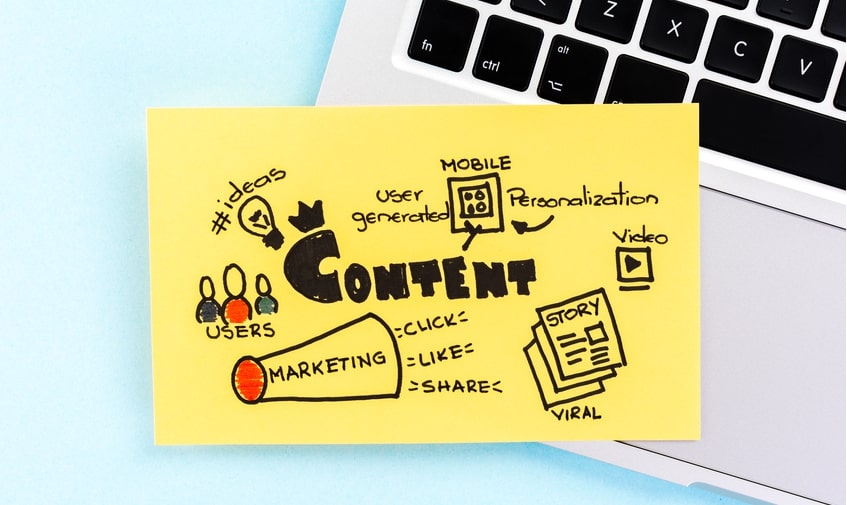

We’re sure the word ‘engagement’ has existed for some time now, but it is just us or is the word used constantly in the media and by people like us?
Whether it’s by politicians or chief executives, it seems to be the go-to word when discussing how they are going to solve all of their problems.
Well, we’re as guilty as all of them as engagement is the entire purpose of any social media campaign. In respect of social media, engagement means someone interacting with you, whether it be in response to your post or proactively to your page or maybe just tagging you and your brand into their message.
This is all well and good but why is it so important?
Well, there are two main reasons:
1. Building Relationships
There is no such thing as a one-way relationship. Unlike TV ads and most other forms of traditional forms of advertising, social media is a two-way street. Because of this, you are able to have conversations, learn, and also gain trust from your buyer personas.
2. Increase Brand Awareness
Have you ever wondered why big and small brands alike ask easy questions and request you retweet a post to enter?
As you’ve probably guessed, they are trying to engage you so that your friends, followers, and connections will also get a chance to see their post and, ultimately, their brand. There’s nothing like word of mouth marketing and social media is word of mouth marketing magnified.
So in simple terms, here is what engagement looks like on the various social media platforms:

Along with the regular ‘Like’, ‘Comment’, and ‘Share’ options for Facebook posts and picture, the latest update that caused a bit of an uproar is the option to ‘react’ to a post.
When hovering over the ‘Like’ button with your cursor, six reactions appear, including the ‘Like’ button, for a user to select. These are (L-R): Like, Love, Haha, Wow, Sad, and Angry – each encouraging users to react to a post rather than just be limited to the ‘Like’ button.

Among the popular ‘Retweet’ button, some accounts overloaded with retweets rather than their own tweets, users have the option to reply to a tweet, ‘Like’ it, or, by clicking on the ellipsis, can share a post and embed a tweet.

LinkedIn keeps it concise. It allows users to ‘Like’, ‘Comment’, and ‘Share’ on posts by their connections.

Instagram is mostly used on a mobile device, so it may look strange here when presented on a desktop, but we can assure you that it does the same no matter which device it is displayed on.

Another social networking site that arguably receives more engagement on the app. Nonetheless, the engagement is the same allowing users to ‘Send’ a pin, ‘Like’ and ‘Save’ a pin to a users’ own board.
Here are 5 ways to encourage engagement without looking desperate:
1. Charity
People like to appear kind hearted and like good deeds, therefore posting or sharing anything charity related will inevitably provoke a response of some sort. It would be pretty stingy of people to scroll past your post and not even like it.
2. Animals
You only have to look at TV ads and trending internet topics and videos over the last decade to realise the increase in animal-related content. Whether it’s a gorilla drumming, biscuits turning into cats or meerkats chatting to Arnold Schwarzenegger, people love animals and know others love them too. Before you can say woof, they will have liked or shared.
3. Topical
By looking at what’s trending and what’s in the news, you will be able to jump on the bandwagon and give your point of view. If it’s on the publics’ minds then it will likely get more attention and less likely that your post will be scrolled past. We’re sure most brands will have mentioned the Olympics at some stage. Also, don’t be afraid of sharing controversial content if you clearly ask for people’s opinion, but don’t state whether you agree or not.
4. Personal
It’s an old saying but people buy from people; try to add some personality to your posts and personalise them by including pictures of your team, founders, customers etc. People can relate to people far easier than a logo or a corporate mission statement.
We can promise you a post showing Brian, celebrating his 25 anniversary as your maintenance manager, will get more likes that a new van with a company logo on it.
5. Inspirational
People like positivity and to be seen as positive, therefore sharing a cool image with an inspirational quote would be the perfect way to start off the week! These are good because images get far more engagement that text posts and these will have more value that just your bog-standard pretty picture. Een any image itself, Buffer has found that sharing images on Twitter increases retweets by 150%.
There will be more obvious ways to go about this, but we believe that you may be at risk of turning people off by constantly asking them to do your job for you or treating them like fools.
Happy engaging!

